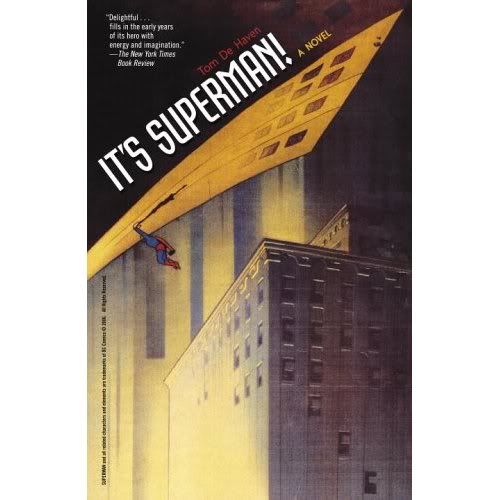Still no review....but soon! For now, I thought I might share with you what I've read over the past four or five months for my senior thesis project. My thesis is a breakdown of science fiction literature that deals with children, and how SF stories that focus on families and children distance the offspring from their parents. I've framed that distance in the overarching theory that, unlike technology (which can be planned, analyzed, predicted, etc.) children cannot be predicted. Even when they're genetically planned, or designed, there's no guarantee that what pops out of one's uterus will resemble its mother.
My reading list:
The Female Man by Joanna Russ. One of the powerhouse writers of the 1970's, Russ'
Female Man shows the feminist utopia at its finest. Four different women from four different universes (in time, not space) portraying different aspects of the struggle against patriarchy - a world where the Great Depression never ended and Jeannine is being squashed into marriage or desolation, Joanna who occupies the 1970's as a feminist battling gender expectation, Janet whose planet Whileaway suffered a gender-specific plague 800 years ago, and Jael the assassin in a war between men and women that has waged for fifty years at least. Janet, who lives in a world that has been completely without men for 800 years, seems to have the perfect situation, but I remain skeptical - her family environment is so disconnected and breeds such fierce independence that there's really no connection to anyone.
Xenogenesis: Dawn, Adulthood Rites, and Imago by Octavia E. Butler. Simply put, a must read for anyone who likes science fiction. Butler deals with issues of identity, feminist power, and what freedom actually means to different people in this trilogy about alien occupation and interbreeding. Her Oankali come to Earth in order to "save" humanity, but the price of their salvation is complete loss of their identity - the Oankali are genetic traders, and the stipulations of their help is that humans accept the interbreeding, and the fact that their children from now on will be constructs of both human and Oankali DNA and features, or they don't breed at all. Did I say they "offered" their help? "Ultimatum" might be a better qualifier.
Darwin's Radio and Darwin's Children by Greg Bear.
Radio is Bear at his hard SF best: a plague called SHEVA devastates pregnant women, causing miscarriages. Turns out the virus is actually part of our DNA and is causing the next jump in evolution, which is described in
Children with the first generation of these "new children." Bear's biting critique of the government and healthcare works much better in the first volume - the second suffers from sentimentality and an unpersuasive view of how Bear thinks things "should" be. At least, that was my evaluation - the new children behave so fundamentally different from our current society it is impossible not to see how Bear is suggesting we fix our "problems."
Daughters of Earth, edited by Justine Larbalestier. An inspiring collection of feminist-driven short fiction and a critical essay for each one. This was immensely helpful to my project, as the essays are focused on unusual topics and full of rich analysis about the stories. It contains some of the absolute best short stories I have ever read, including "And I Awoke and Found Me Here On the Cold Hill Side" by James Tiptree Jr., a bitter piece about the attraction to the exotic, "Rachel in Love" by Pat Murphy, a heartbreaking look at meddling with science and those it can hurt, and "The Evening and the Morning and the Night" by Octavia Butler, which I rank among her best work. Another story about the fallout of scientific progress and its unforeseen consequences.
(On a side note, I did not mean to get so "sum-up-ish" there.)
Flying Cups and Saucers, edited by Debbie Notkin. Another brilliant collection, of Tiptree Award winners and runners-up in the field of short fiction dealing with the advancement of feminist or gender-relations agendas. "Eat Reecebread" by Graham Joyce and Peter Hamilton, "Grownups" by Ian R. MacLeod, and "Motherhood, Etc." by L. Timmel Duchamp all made into my project; "Reecebread" in particular is an intriguing and troubling piece about human evolution and the fear of difference.
A wide spattering of the Gardener Dozois collections,
The Year's Best Science Fiction. A friend of mine commented that he didn't put much stock in those, as they're supposed to represent the best of the genre and who can really make that call? I liked them quite a bit, as even though they may not actually have the "best" stories they definitely represent the widely read, the trends for the year, and in general a good overview of what's being written at the time. Since my project depends on the identification of trends, I found them to be very helpful. And hey, they're absolutely brimming with brilliant stories. I looked specifically at years 2005, 2007, and 2008, but I think any one of them will provide a good read.

